EU Diplomacy Paper 3/2024
The Department of EU International Relations and Diplomacy Studies has published a new EU Diplomacy Paper entitled "The ‘Graveyard of Umpires’? The Hard-Learned Lessons that Afghanistan Taught EU...
The halls of residence are open throughout the academic year except for two weeks for the winter semester break. Each residence has a housekeeper who looks after the students, takes care of breakfast and coordinates the maintenance of the residence. All residences are non-smoking.
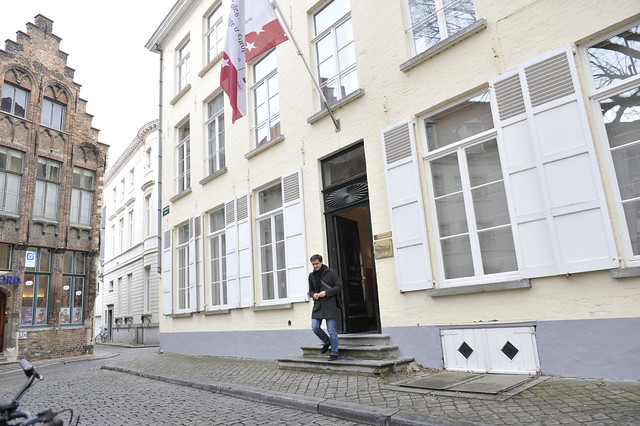 BiskajerThis is an old majestic house situated on Biskajer square, built in classicist style in the first half of the 19th century and subsequently converted into a student residence. One of Biskajer's highlights is its grand entrance hall. It has 53 student rooms and also accommodates a breakfast room, TV room, common room, bike shed and a laundry room in the cellar. On warm summer evenings the inner courtyard is often used by the students for ad-hoc volleyball matches or other sports.
|
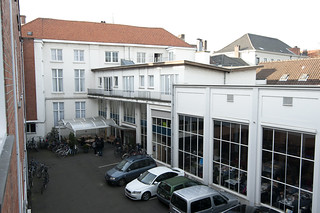 GarenmarktThe residence Garenmarkt, formerly The Hotel Portinari, is a bridge to the glorious past of Bruges, not so much owing to its classical facade, but because Tommaso PORTINARI was the administrator of the Florentine "Loggia de Medici" in the 15th century in Bruges. It contains 11 spacious apartments for professors and 38 student rooms, two "salons" in fine 19th century style, the "salon du Recteur" with remarkable 18th century wall paintings, and a large modern "Mensa" for students.
|
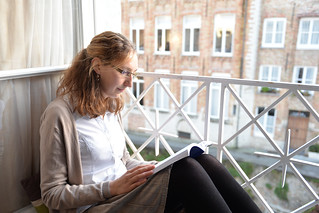 Gouden HandThis beautiful Bruges style house dates back to the 17th century and is a listed monument. During the 2005-2006 academic year it was renovated and provides 48 spacious rooms with private bathrooms. The Gouden Hand student bar which is situated in the cellar is the place where students have been gathering for years. The building has been a backdrop for many films and documentaries.
|
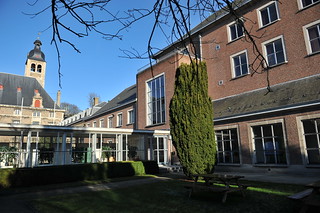 OliebaanThis building was constructed in 1959 on the grounds of the "Grootseminarie" at the Potterierei. It houses 32 students, and has a breakfast room, recreation room, TV room and a spacious garden. This is perhaps the quietest of the College's residences.
|
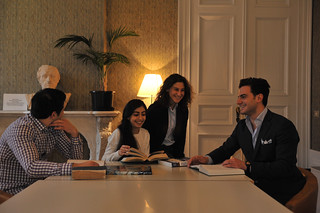 Oude ZakBuilt in the 19th century, this majestic residence occupies two buildings, and provides 57 student rooms along with 3 professor's apartments. It also features a TV room, recreation room and breakfast room. It also houses the students' sauna.
|
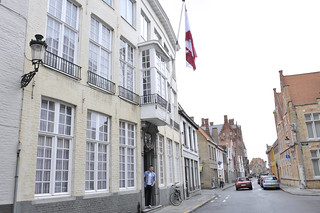 Sint-JorisThis beautiful Bruges mansion has a total of 25 student rooms around an inner courtyard, with a breakfast room, a TV and recreation room. The interior was completely renovated in 1999.
|
 SpanjaardstraatThe property was originally built by the family ‘Cools’. In the 70’s it was acquired by the city of Bruges. The building was used as office space for the Bruges’ Tax Department. In 2011 the building was sold, completely renovated, and named ‘Huyze Cools’, after its founding father. The residence was acquired by the College of Europe in 2022. It has 49 studios, which are all equipped with a kitchenette and a private bathroom.
|
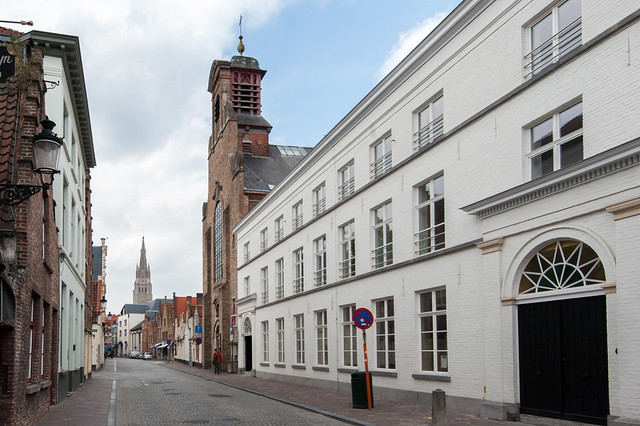 Karel Verleye residenceThe monumental monastery of the “Red Nuns” or “Redemptoristine nuns” was built in 1844-1847 in Bruges and is an early example of the gothic revival. In 2004 the last nuns left for other monasteries and both the church and monastery have been completely renovated to host students, families and elderly people in a luscious green setting. The architecture of the buildings is remarkable and has kept many historical elements. The renowned Belgian landscaper Jacques WIRTZ preserved the original garden structure and combined it with a modern design. At the end of August 2017 the College of Europe acquired 40 student rooms and in 2020 another 41 student rooms will be made available to our students. In 2018 the residence was officially named the Karel Verleye residence, in honour of one of the College’s founding fathers.
|